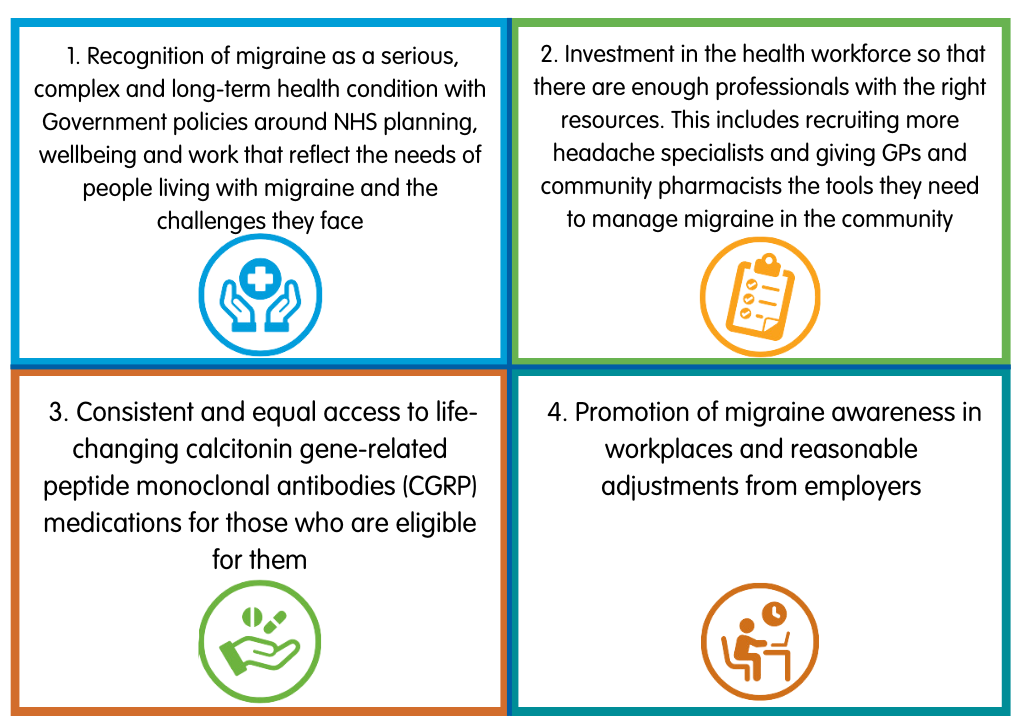Write to your MP: make your voice heard
Ask them to support better migraine care
The UK has a new Parliament, and a new Government that can set an agenda for health and work. This is a chance for people who understand the impact of migraine to speak out and highlight to those seeking power how migraine affects people who live with it.
One in seven people in the UK live with migraine – around 10 million, or roughly 10,000 people per UK parliamentary constituency
You can reach out to your MP and ask them to support a transformation in care and support for the millions living with migraine. More than half of the MPs in this Parliament weren’t in the last one, so this may be the first time they will be hearing from constituents about migraine. As MPs, they can:
- Raise migraine care in Parliament and help put it on the Government’s agenda
- Put pressure on local NHS bodies about their plans for patients with migraine
- Highlight what the Government and employers should be doing to enable people with migraine to get the reasonable accommodations they need to work.
What needs to change
The Migraine Trust is calling for all politicians to take migraine seriously and see it as a debilitating neurological condition. We want to see equal access to treatment and reliable support where people live from GPs and pharmacists.
This means: 
Why we need change
One in seven people in the UK live with migraine – around 10 million people. This means roughly 10,000 people per UK parliamentary constituency. One million people live with chronic migraine, experiencing headache more than 15 days a month for more than three months at a time. Migraine is far more than just a headache and can be debilitating having a significant impact on daily activity, ability to work and socialise, and mental health:
- In a survey by The Migraine Trust, high numbers have had cut down to part-time work or left a job entirely because of their migraine – 56% said their workplace had not made reasonable adjustments to support them in work
- The impact of migraine costs the overall UK economy at least £4.4 billion a year from 28 million lost workdays, and the NHS spends around £150 million a year on treating migraine
- Incidence of anxiety is around four times higher than in those without migraine, and research by The Migraine Trust found 78% of respondents living with migraine said it impacts their mental health.
Despite all this, migraine is still often written off as ‘just a headache’, and stigmatised and neglected by local health systems. Our support services hear from patients every day who struggle to get the support they need. Research has found huge inconsistencies in access to specialists and to key medications across local NHS areas. Waiting times for specialist headache and migraine care in England alone have doubled between 2021 and 2023, and patients and clinical experts alike have highlighted the barriers people living with migraine face in primary care.

“It’s been hard to find medical professionals who listen and understand just how debilitating a migraine is. I had a fantastic GP at one point who would turn the lights down, close the blinds, talk in a calm way. I’d sit there with frozen peas on my head and my sick bowl next to me. He knew just what I needed. Others seem to say ‘we don’t know how to handle it’. Everything just takes so long. Waiting lists are huge and there aren’t enough doctors or hospitals with appointments or even clinics“


